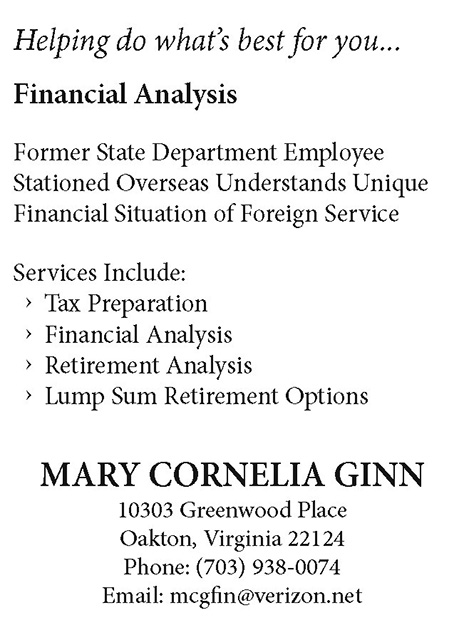Higher Education and the New Scramble for Africa
Investment in higher education is a vital component of effective and constructive U.S. engagement in a dynamic Africa.
BY JONATHAN V. AHLSTROM

An artistic depiction of Henry Morton Stanley’s detachable steamship on the Congo River in the late 1870s.
Old Books Images / Alamy
As the Welsh American explorer Henry Morton Stanley opened the mysteries of central Africa to the world in the late 19th century, European monarchs regarded his trek with interest. As an employed agent of King Leopold II, Stanley was integral in the Belgian monarch’s eventual claim to the Congo Basin, the horrific chronicles of the Congo Free State and the subsequent boom in the East Africa slave trade. Among the most notorious, the Congo takeover marks just one of the many depredations by a European power during the scramble for African territory that began in the 1880s. The wounds of that period of colonial conquest and failed postcolonial rule remain fresh for many African states, even as a new scramble for Africa is occurring in the context of strategic competition.
Today, it is time for the United States to set an example to the world on collaborating constructively with African states in their individual journeys as they navigate the complex geopolitical landscape of the 21st century. The Biden administration’s March 2021 Interim National Security Strategic Guidance acknowledges as much: “[The United States is committed to helping] African nations combat the threats posed by climate change and violent extremism and support their economic and political independence in the face of undue foreign influence.”
To achieve these ends, American diplomatic and development leaders should construct an Africa strategy that bridges a single administration’s partisan divides and cultivates the growth of long-term, mutually beneficial relationships with African partners. One pillar of this approach should be to employ one of the most potent and effective, but underutilized strategic instruments: investments in higher education.
A Record of Success and Promise

Ms. Tambwe Safalani received the prestigious Royal Flame Award of Leadership in April 2020 for her commitment to the Georgia State University community and in recognition of her future leadership potential.
Courtesy of Tambwe Safalani
In 2015, Tambwe Safalani, the daughter of Congolese parents with a large, close-knit family, set out for the United States to start her pedagogic journey at Georgia State University. Her parents imbued her with the importance of acquiring a strong education as the foundation for all future work. Having recently completed her master’s degree in economics, she will soon enter a Ph.D. program during which she will concentrate on public policy. To contribute to the socioeconomic and political advancement of the African continent, Ms. Safalani founded Children Assistance First, a nongovernmental organization dedicated to improving the education, nourishment, protection and development of African children. The Democratic Republic of the Congo and Africa at large will benefit from Ms. Safalani’s talent, passion and energy. As a future leader, she has the advantage of a top-tier education founded on strong democratic principles and a network of committed American friends and partners.
Such stories of promise and success from U.S. exchange programs have been repeated time and again throughout American history. Since the end of World War II, the U.S. Department of State, Department of Defense and Agency for International Development have employed a collection of education exchange platforms. Run through the State Department’s Bureau of Educational and Cultural Affairs, the Fulbright Scholar Program now boasts a network of more than 400,000 foreign alumni since its inception in 1946. This flagship program continues to bring 4,000 international students to study in the United States annually. The Fulbright program’s impact in Africa is substantial. For example, in Ghana, Fulbright alumni account for former presidents, prime ministers, academics and other prominent citizens.
The State Department’s efforts in shorter education exchanges include such programs as the Young African Leaders Initiative. A highly successful effort started under the Obama administration, the program features the Mandela Washington Fellowship, a six-week course of study in the United States for aspiring African youth. Today, the program claims more than 700 alumni and a network of members connected to regional centers in Ghana, Kenya, Senegal and South Africa. State Department programs foster people-to-people connections that create networks among current and future global leaders, who above all else understand democratic values and society. In other instances, the State Department works in close concert with the Department of Defense in Africa. Funded through State’s peacekeeping operations account, the Africa Military Education program works to professionalize African military forces through faculty and curriculum development at various African military education institutions.
The U.S. Department of Defense is a unique partner in the area of higher education. Defense education strategy is developed through the Defense Language and National Security Education Office, which also oversees various related initiatives for U.S. and foreign military members. Foremost of these is DOD’s International Military Education and Training program.
Over the past decade, China has established 60 Confucius Institutes at universities in 38 African countries.
Since its establishment in 1976, IMET has funded members of foreign-allied and friendly militaries pursuing courses of study in the United States. The program plays a vital role in forming the connective tissue between American military forces and foreign military powers. However, some of the great potential of IMET is diminished because of a lack of post-education engagement and networking on the part of the United States government. Foreign military exchange students receive minimal contact following their studies, and this leads to missed opportunities for this network to further American democratic values, such as a civilian-run military.
In aggregate, across all functional and regional bureaus, USAID supports more than 12,000 learners annually with scholarships to study in the United States or their native country. The agency sees higher education investments as an integral part of a developing country’s journey to self-reliance. It draws direct links between higher education investments (often referred to as a nation’s intellectual capital) and reductions in poverty, economic advances and overall sustainable development. USAID provides institutional capacity building through mechanisms such as the Higher Education Solutions Network, which supports partnerships between the United States and host countries to innovate and develop solutions for local development challenges. However, like IMET, the Higher Education Solutions Network needs improvements in internal data collection and clear higher education engagement objectives to be fully effective.
Why It Matters
Exchanges in higher education don’t just involve earning a degree. The experience is as much about cultural exchange as it is about the course of study. Students in an exchange program are often taught in a manner different than that found in their native country; they acquire transversal skills not normally found in traditional education programs, and they learn firsthand the traditions unique to the host culture. Exchange students often form lasting bonds with their classmates and develop diverse networks of colleagues and friends. These relationships form a sort of connective tissue between the exchange countries and serve as a basis for future collaboration and mutual understanding.
The steadily growing utilization of online learning offers new challenges—but also new opportunities—for American institutions. From the standpoint of exchanges, the most significant immediate problem with online education is loss of the immersive, in-person experience that is the heart and soul of these programs, as was proven with the sudden cessation of in-person exchanges during the COVID-19 pandemic. Yet, as the State Department has shown over the past two years (see “In-Person Exchanges, Interrupted” by Deena Mansour, April 2021 FSJ), a carefully developed program of personal exchanges can still achieve the desired connection and network so valued from the traditional exchange. The U.S. is well positioned to benefit from new developments in online education and its potential application in strategically engaging Africa.
The U.S. is well positioned to benefit from new developments in online education and its potential application in strategically engaging Africa.
The importance of higher education investments is not missed in the burgeoning Sino–African relationship. In 2003, fewer than 1,300 African students were enrolled in Chinese universities. Fifteen years later, in 2018, the number of African students in China exceeded 80,000, according to data published by the PRC Ministry of Education. In context, this makes China the second-most popular destination for African students studying abroad, behind France. In opening remarks at the 2018 Forum of China-Africa Cooperation, Martin Mpana, Cameroon’s ambassador to China, revealed his hopes that African youth take advantage of study-abroad opportunities in China to “learn more about China and from the policies and development experience of the Communist Party of China.”
The PRC’s outreach is made through Confucius Institutes, the country’s most potent mechanism for recruitment and influence at foreign universities. With a stated mission to share Chinese culture and language with the world, these institutes serve as a launch point for arranging people-to-people exchanges and influencing local perceptions of China and teachings related to issues deemed controversial. Over the past decade, China has established 60 Confucius Institutes at universities in 38 African countries.
Challenges to Education Initiatives
The United States has a proud history of higher education development projects. The modest investments made in higher education with African partners over the years have contributed to real changes in those countries. Despite this, however, higher education exchange initiatives fail to capture stronger support from the U.S. government and lawmakers. While some growth has occurred in the educational and cultural exchanges budget over the past decade, financial increases are geared toward newer embedded objectives, such as the campaign to combat disinformation; though an important initiative, it nonetheless draws from needed increases in the critical people-to-people program budgets.
Compounding this, there has been a steady decline of international student enrollments in the United States—even before COVID-19 paralyzed world travel. A survey commissioned by the U.S. Department of State determined that the four years preceding the start of the pandemic saw steadily falling international student enrollments.
The United States should embed higher education mechanisms and exchanges into existing and new frameworks.
The challenges advancing higher education initiatives at scale are attributed to the following factors:

U.S. Army Major Ben Showman discusses the process of establishing physical performance goals based on tactical training needs with Nigerien Army Captain Issoufou Abdonlaye Souley at the Nigerien Armed Forces Training School in Niger, November 2017.
U.S. Army / Maj. David McLean
• The gains from international students studying in the United States are not realized immediately. Often, students study abroad earlier in their life before achieving positions of prominence in their respective fields. This makes the idea of committing funds to something that will not show near-term returns less desirable.
• The positive effects of education exchanges are undercut by the lack of data collection and network engagement. Across all public and private exchanges, there is a need to collect evidence concerning the outcomes of various scholarship and capacity-building programs. Presenting coherent and convincing arguments for increased funding for higher education exchanges is not possible without systematic evidence demonstrating the long-term return on investment. The ability to collect data of this nature requires improved tracking and engagement of alumni.
• America’s position as the preeminent destination for international students to study is directly challenged by expanded opportunities to study in other countries. The economic rise of China and Beijing’s outreach through the Belt and Road Initiative is the prime example. Apart from the PRC’s aggressive efforts to recruit them, young people are consciously choosing to study in China as a reflection of where they see their greatest future opportunities.
• Visa restrictions to enter the United States act as a deterrent to facilitating higher education exchanges. Systemic delays in student visa processing and visa denials create insurmountable barriers for some students aiming to study in the United States. The combination of an archaic and tangled bureaucratic process with the negative American messaging toward immigrant visas directly contributes to the growing problem.

Work is ongoing on the Solar-Plus-Storage power project in Malawi. The 20-megawatt project is the first of its scale there to employ a large-scale battery storage system that allows the plant to provide reliable, renewable energy to the national power grid.
USAID
What Can Be Done
It is urgent to put more effort into higher education engagements with African partners now, because the increase in human capital from the academic investment in Africa’s youth will directly support the growth and development of partner countries, and forge stronger mutually beneficial relationships with the United States. To achieve these aims, the United States should embed higher education mechanisms and exchanges into existing and new frameworks. Capitalizing on existing structures allows for faster implementation and reduced startup costs. For example, connecting education opportunities with the partnership-building pillar of USAID’s trade and economic investment strategy Prosper Africa would allow for comparatively easy capacity growth.
The shape of these programs can vary in structure and cost; however, at a minimum, the following efforts should be undertaken.
First, the United States should aggressively expand support to African institutions employing U.S. models of higher education. Higher education institutions that use U.S. models provide a liberal education that is more prone to promoting critical thinking skills and freedom of thought while also focusing on individual career development. At a strategic level, these institutions espouse the values of democracy and transparency—values that the future generation of African leaders will benefit from embracing.
Second, the United States should embed American-based degree study programs into all aspects of foreign support projects. This would necessitate apportioning a percentage of overseas development investment toward education. For example, USAID’s flagship initiative Power Africa brings together technical experts with private entities and governments from around the world to address the severe lack of access to electricity in many regions of Africa (see “Energy Diplomacy Works” by Andrew Herscowitz, March 2020 FSJ). Power Africa’s record of success continues, as USAIDseen in the recent production of clean solar energy in Malawi or the first utility-scale wind farm to add renewable electricity to Senegal’s power grid. The integration of higher education requires setting aside funding within each project to invest in human capital development. For example, the planned 343-kilometer transmission line in Angola, which is projected to integrate regional grids into a national grid, would also send Angolan operators to the United States for electrical engineering degrees.
Finally, the United States should embrace a program for new and previously existing partnerships between American community colleges and African vocational schools. This is a vital step in laying a strong foundation for future American-African relations. The African youth who participate in study abroad programs at U.S. community and technical colleges represent future leaders back home. Benefits from these programs are numerous and include improved employment rates and acquisition of entrepreneurial skills. At the strategic level, this will assist in spreading the liberal American model of schools.
It is time to make higher education a core tenet of any approach to partnering with African countries. At a fundamental level, these exchanges engender trust between the United States and the recipient country. Trust is a critical commodity and one that the United States struggles to find with many African countries. Much like European powers, the United States has a legitimacy problem that stems from being a Western power associated with a history of colonialism and slave trade. This dynamic helps tilt the scales favorably toward America’s rivals in strategic competition. Higher education opportunities facilitate building a foundation of trust, mutual understanding and shared values. The United States must commit to expanding its investment in human capital and embrace the new scramble for Africa.
Read More...
- “Energy Diplomacy Works: How Power Africa Redefines Development Partnerships” by Andrew Herscowitz, The Foreign Service Journal, March 2020
- “Back to Brazzaville” by Dan Whitman, The Foreign Service Journal, October 2019
- “Development Aid to Africa: Time for Plan B?” by Don Lotter, The Foreign Service Journal, April 2016





